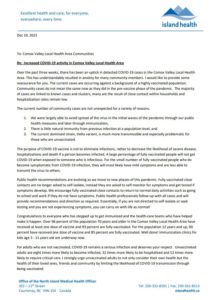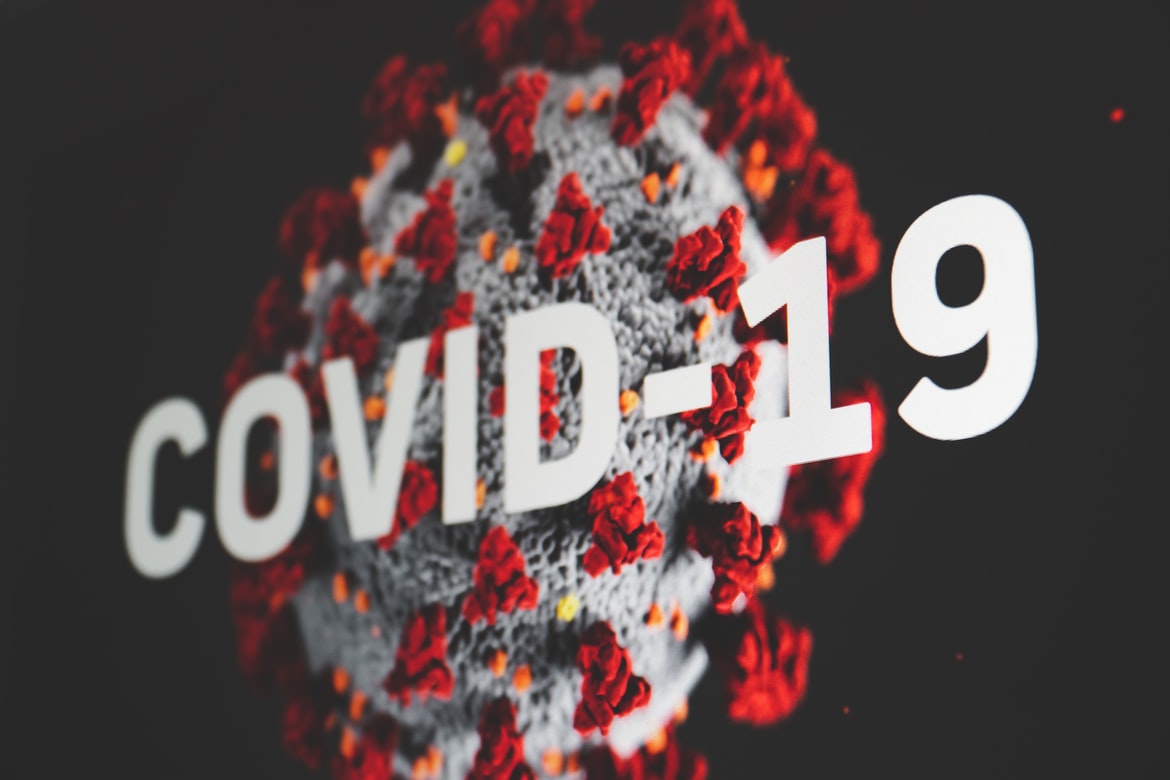Comox Valley’s medical health officer is addressing the uptick in detected COVID-19 cases, noting it’s “not unexpected for a variety of reasons.”
On Thursday (Dec. 9), our newsroom reported that the Valley was experiencing the highest infection rates in all of B.C., as per the latest data from the BC Centre for Disease Control.
Between Nov. 21 and 27, a map showed the area with 80 active virus cases per 100,000 people. The week after, the cases more than doubled, climbing to 161.
“This has understandably resulted in anxiety for many community members,” Dr. Charmaine Enns said in a Dec. 10 letter.
“I would like to provide some reassurance for you.”
According to Enns, current cases are occurring against a background of a highly vaccinated population, with cases not meaning the same now as they did in the pre-vaccine phase of the pandemic.
“The majority of cases are linked to known cases and clusters, many are the result of close contact within households, and hospitalization rates remain low,” Enns explains.
But the recent case increase doesn’t necessarily come as a surprise, according to Enns.
In the initial waves of the pandemic, she says the community was “largely” able to avoid spreading the virus through public health measures and later through immunization.
She also points to “little natural immunity from previous infection at a population level,” while adding the current dominant strain, Delta variant, is “much more transmissible and especially problematic for those who are unvaccinated.”
85 per cent of Comox Valley residents 12 and older fully vaccinated:
Dr. Enns notes the purpose of a COVID-19 vaccine is not to eliminate infections but rather decrease the likelihood of severe disease, hospitalizations and death if a person becomes infected.
She says over 96 percent of those 70 years and older in the Comox Valley Local Health Area have received at least one dose of vaccine, with 93 percent now fully vaccinated.
Meanwhile, for the population 12 years and up, 90 percent have received one dose of vaccine and 85 percent are fully vaccinated, Enns explains.
She says fully vaccinated people who were in close contact with an infected person can continue with life as usual unless they’re told to self-isolate or symptoms arise.
“For adults who are not vaccinated, COVID-19 remains a serious infection and deserves your respect. Unvaccinated adults are eight times more likely to become infected, 32 times more likely to be hospitalized and 52 times more likely to require critical care,” Enns adds.
“I strongly urge unvaccinated adults to not only consider their own health but the health of their loved ones, friends and community by limiting the likelihood of COVID-19 transmission through being vaccinated.”







